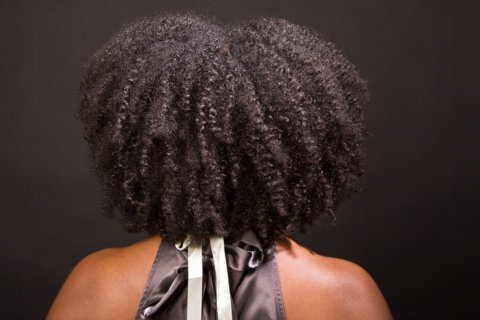Residents in Montgomery County, Maryland, are weighing in on a new bill that clarifies the county’s anti-discrimination law to include hair.
The CROWN Act — Creating a Respectful and Open World for Natural Hair — was introduced Sept. 24 in Montgomery County. It clarifies the county’s anti-discrimination law to include hair traits that are historically associated with race, including hair texture and protective hairstyles such as braids, locs, tight curls and twists.
Similar laws have already been adopted in both California and New York.
Yamin Del Sar, a graduate of Northwood High School, in Silver Spring, now works as a marketing coordinator. She told the Montgomery County Council on Tuesday, “To me, this bill would mean we are seen for our capability and knowledge. [That] we are more than just our hair. [That] we are able to walk into the room with our God-given hair and not feel ostracized or separated.”
She said she has to consider how she wears her hair to avoid discrimination, and she said her manager recently told her that her appearance was unprofessional.
Such attitudes can lead someone “to believe, if our hair isn’t straight or doesn’t fall in line with the European standards of beauty, we are unkempt and unprofessional, which is far from the truth,” Del Sar said.
Council President Nancy Navarro, a co-sponsor of the bill, said she was inspired by what her daughters go through in styling their hair: “It’s ridiculous that, in this day and age, we are still dealing with this type of extreme barriers.”
Many others testified to the council about the health hazards African-American men and women face when they chemically treat their hair for years to meet a certain societal standard of beauty.
“For many years, I used chemical relaxers before I realized, like many other women, the danger of the chemicals we put in our hair,” said Nicole Drew, president of the Montgomery County Commission for Women.
Attorney and new resident Jeanette Conrad Ellis commented on her son’s decision to grow dreadlocks. She said it caused her and her husband to be concerned about how he might be profiled by police.
“I myself have had to make decisions based on the environment. In the summers, sometimes I’ll rock braids as a protective style so I can swim. I do think about, ‘Where am I going and how will that be perceived?’ ‘Is that conservative enough?'” she said.
Navarro thanked the participants for weighing in on the bill. “Little girls hopefully very soon won’t even have to think about this as they go through and shine and explore their potential,” she said.








